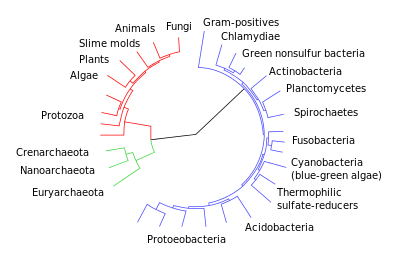Evolutionary anthropology
| Part of a series on |
| Evolutionary biology |
|---|
 |
|
History of evolutionary theory |
|
Fields and applications
|
|
Evolutionary anthropology is the interdisciplinary study of the evolution of human physiology and human behaviour and the relation between hominids and non-hominid primates. Evolutionary anthropology is based in natural science and social science. Various fields and disciplines of evolutionary anthropology are:
- Human evolution and anthropogeny.
- Paleoanthropology and paleontology of primates.
- Primatology and primate ethology and paleontology.
- The sociocultural evolution of human behavior.
- The evolutionary psychology and evolutionary linguistics of humans.
- The archaeological study of human technology and change over time and space.
- Human evolutionary genetics and changes in the human genome over time.
- The cognitive neuroscience and neuroanthropology of human and primate cognition, culture and actions and abilities.
- Human behavioural ecology and the interaction of humans and the environment.
- Studies of human anatomy, endocrinology, and neurobiology and differences and changes between species, variation between human groups, and relationships to cultural factors.
Evolutionary anthropology is concerned with both biological and cultural evolution of humans, past and present. It is based on a scientific approach, and brings together fields such as archaeology, behavioral ecology, psychology, primatology, and genetics. It is a dynamic and interdisciplinary field, drawing on many lines of evidence to understand the human experience, past and present.
Studies of biological evolution generally concern the evolution of the human form. Cultural evolution involves the study of cultural change over time and space and frequently incorporate cultural transmission models. Note that cultural evolution is not the same as biological evolution, and that human culture involves the transmission of cultural information, which behaves in ways quite distinct from human biology and genetics. The study of cultural change is increasingly performed through cladistics and genetic models.
See also
- Biocultural evolution
- Evolutionary psychology
- Evolutionary neuroscience
- Sociobiology
- Dual inheritance theory
- Homininae